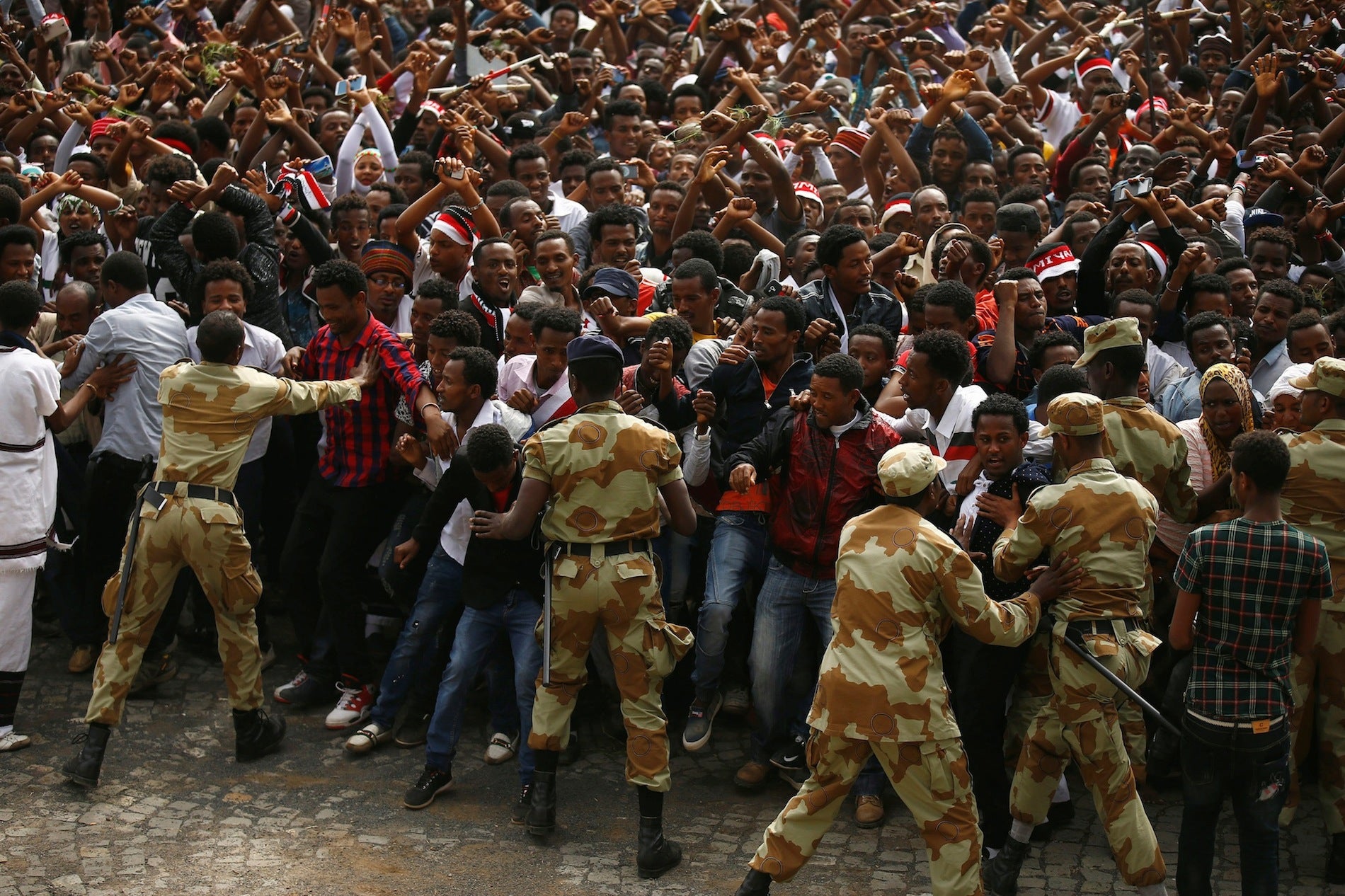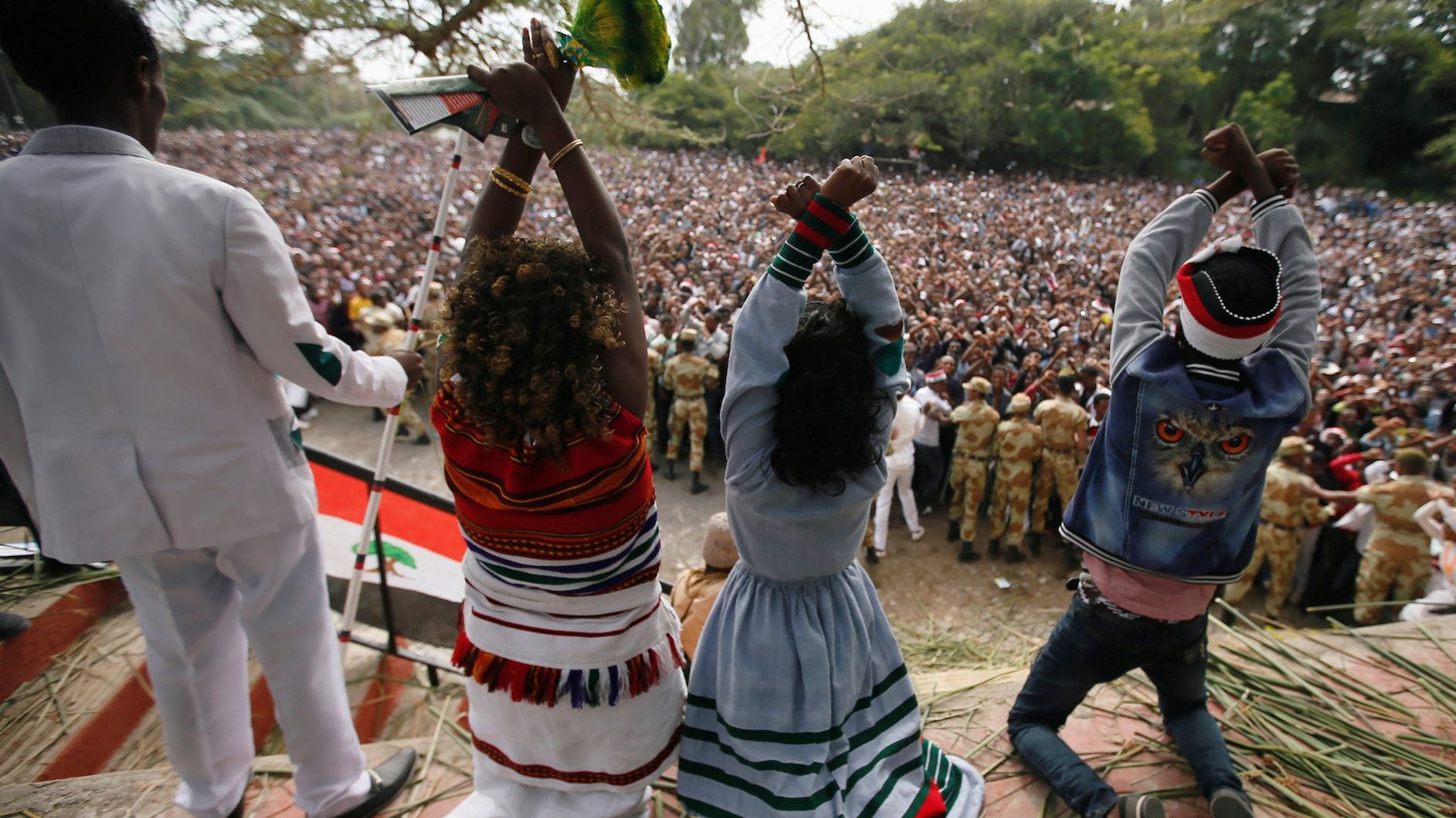Ethiopia is in a state of national mourning after 52 Oromo protesters were killed in a stampede
Scores of protesters and bystanders were killed on Sunday (Oct 2) when a crowd gathered for an Oromo religious holiday turned into a stampede. The government of Ethiopia has declared three days of mourning for the victims.


Scores of protesters and bystanders were killed on Sunday (Oct 2) when a crowd gathered for an Oromo religious holiday turned into a stampede. The government of Ethiopia has declared three days of mourning for the victims.
Activists say the stampede began after police fired tear gas and rubber bullets into a peacefully chanting crowd. Groups gathered at the festival had begun chanting the anti-government slogan “down, down TPLF,” referring to the ruling Tigrayan People’s Liberation Front, and holding their arms up, crossed at the wrist—a gesture of the current protest movement meant to symbolize being handcuffed.
Ethiopia has been the site of deadly violence and protests for more than a year, as members of the Oromo, the country’s largest ethnic group, protest against what they say has been decades of government-sponsored marginalization of their culture and freedoms.

The country’s second largest ethnic group, the Amhara, has recently joined the Oromo in their anti-government protests. The government is dominated by the Tigray, who make up just 6% of the country’s population of 99 million people.
The Ethiopian government says 52 people died on Sunday, while local doctors say that at least 100 died, most of them crushed to death or drowned in Lake Hora in Bishoftu in southeast Ethiopia, where the Irreecha festival, a thanksgiving holiday, was held.

Both sides are blaming the other for the stampede. Ethiopia’s state broadcaster said that “innocent citizens” lost their lives because of “anti-peace forces.” The regional Oromia government said the stampede was caused by ”evil acts masterminded by forces who are irresponsible.”
More protests are likely over the next few days of mourning. Anti-government demonstrators online have changed their profiles to solid black in protest. Local activists have reported pockets of protests throughout the country and the internet being cut out, a strategy Ethiopian authorities have used before. Protests spilled over into Kenya, where police arrested 40 protesters demonstrating in solidarity with the Oromo.
[protected-iframe id=”a6498c16f93b95078753b00dcecffa80-39587363-37717567″ info=”https://www.facebook.com/plugins/post.php?href=https%3A%2F%2Fwww.facebook.com%2FJawarmd%2Fposts%2F10102575882697223&width=500″ width=”500″ height=”664″ frameborder=”0″ style=”border: none; overflow: hidden;” scrolling=”no”]
Between 400 and 600 Oromo have been killed since last November when the the group first began protesting plans to expand the capital Addis Ababa into the surrounding Oromia region. That plan has been shelved but protests have continued and morphed into a general anti-government movement that has shown few signs of slowing down.